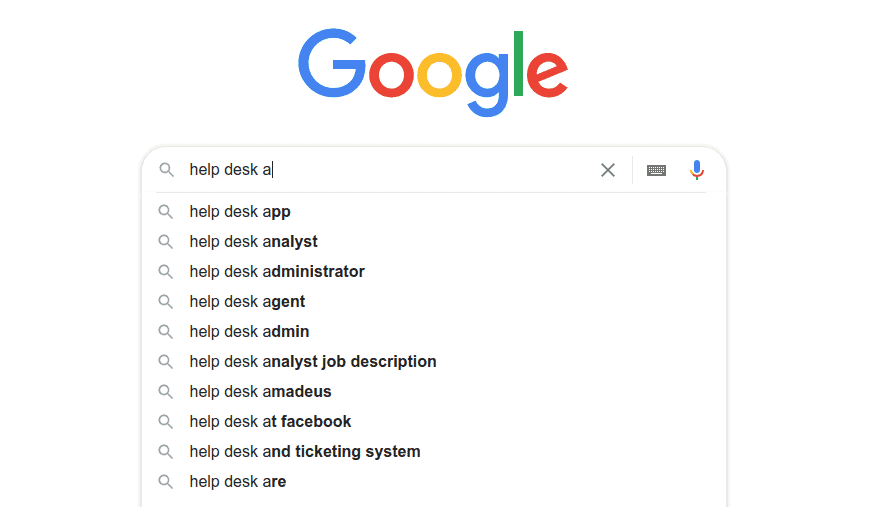Consider this a Google Rankings guide for small business owners – the basics for improving your rank in 2020.
Welcome to 2020, where the world is locked down and rankings matter.
Okay, the majority of the world is slowly inching out of lock down, but masks are still important, and the average person is still spending far more time at home and online than they ever have in the last two decades. Business owners are realizing with pressing urgency that the internet is where it’s at.
As a small business, you’ve probably heard people talk about the Google page rankings. As a consumer, you certainly understand that you are more likely to click one of the top three links in your search results than any of the rest.
You probably are not, however, steadily following the changes Google makes to its algorithms or their “Core Updates.” As a small business owner, you have enough to worry about.
We all know Google Rankings are important. The complicated question is, “How do I move up?” Add in the updates Google continues to release that change the requirements to rank at the top, and the solution becomes even more complex. Here’s a basic rundown of what you need to know to start improving search traffic to your site. While this isn’t an exhaustive list of Google ranking factors, it’s a solid place to start.
Google Algorithms
Algorithms are the formula Google uses to determine who gets the top organic search spots on a given query (i.e. Google search). Usually, about twice a year, Google releases a new algorithm update. The primary goal of these updates is to improve user experience. Whether it’s adding a new element to the formula or tweaking those already included, Google continues to nudge and tap the bar to respond to and anticipate what searchers want as our search habits evolve.
Google Core Updates
Since its beginning, the search engine has been releasing core updates to the system and algorithm that often leave digital marketing geeks like us feeling a little wobbly. They often have cute names like “Penguin” or “Hummingbird.” However, there have been a few doozies like “Mobilegeddon” that sent sites that were not mobile friendly plummeting to the bottom of the rankings.
Google’s May the 4th Update:
On Star Wars day, Google dropped a significant update (right in the middle of a global pandemic) that left those of us in the SEO business reeling a bit. Volatility was a big concern.
There seems to be some ambiguity over which came first, the searches or the rankings. News and travel sites seemed to be two of the areas that saw some big shifts. These two sectors, in particular, were also the most strongly influenced by world events of the last few months. Was there a high volatility in travel ranking because people were and then, quite suddenly, weren’t? Or, did the algorithm rock the rankings first? Were news websites seeing the best results because of the recent pandemic-related events? Or did the pandemic simply coincide with the ranking shift from the update? Given all that was going on in the world, it’s difficult to determine what led to the changes.
With any update, while volatility may be a bit of a concern, it’s also important to compare clicks to conversions. Sometimes, as with the May 2020 update, you may see a more specific audience that might actually be more inclined to make use of the products or services you offer. Many of these updates are actually honing the web so that people’s results are more closely aligned to their intent. That means Google may not be sending as many people to you, but they’re the RIGHT people.
GOOGLE 2021 Update:
Following the weirdness that was the May 2020, Google announced its next update to be released in 2021. This one will be adding a “Page Experience” signal to the mix. How users experience your site when they open a page will be a critical component of how well you rank. The page experience metrics combine “Core Web Vitals” with already existing expectations for a healthy site. Google considers these factors as a crucial part of page experience:
- Page loading speed
- Interactivity
- Visual stability
- Mobile friendliness
- Site security
- Lack of pop-up ads
Only pages with the best user experience will earn the most trusted spots in search queries.While you may already be feeling the burn from Google as you work to rank higher, some sites that have been focusing on user experience are already prepared for the next update.

DON’T PANIC!
Through all of their updates, the search engine giant’s advice remains largely consistent….
Content
When it comes to digital marketing/rankings, content is still KING! What you are filling your site with is critical to good rankings.However, sheer volume of content is not the only important factor. These crucial elements that make up your content influence how search engines evaluate your site:
Keywords: The biggest part of creating solid content is KEYWORD RANKING! Google offers a variety of tools to help developers and content writers including the Keyword Planner that can help you determine the best keywords and phrases to bring the right people to your site.
While it’s important to use those special words, a blog post of your chosen keyword repeated 2,000 times on your page won’t make the Google gods happy. Those keywords have to be seamlessly blended into quality content. Which brings us to our next question. What is quality content?
Content so good, browsers will EAT it UP.
Okay, it’s a corny pun, but it’s true: The best way to make sure you have GREAT content is to measure it against the acronym EAT.
- Expertise – Are you considered an “expert” in your field? This is one of those enigmatic elements that Google has yet to really provide a solid formula for. It really depends on what content you are claiming to be an expert in. Expertise ranges from medical degrees to mechanic certifications to everyday experience.The best way to make sure you are considered an “expert” is to simply be honest with yourself and those visiting your page. If you don’t have extensive knowledge through years of life experience or a degree, it’s probably not the topic you need to be discussing on your site.
- Authoritativeness – A big clue in helping to determine how authoritative your site is can be found when looking at the sites that link to your web pages, a.k.a. referring domains. This is where backlinks become a pretty big deal. If credible pages are linking to your site, it boosts your authority. A good SEO specialist will be able to help you earn those backlinks that increase both your visibility and your authoritativeness.
- Trustworthiness – Providing accurate information from a site that is secure adds to your trustworthiness. Recently, Google has seriously cracked down on “bad apple” sites in an effort to clear the junk from the top ranking results.

Site Health
Each of the above are elements used to determine your site’s health. Site health is a gauge SEOs use to determine how easily Google’s bots can crawl your site. When Google’s little spiders (bots) can crawl your site easily, your site ranks well. When the juice gets slowed down or blocked, it can really impact user experience and your rankings.
There are literally hundreds of things to monitor in order to maintain the health of your website, and many of them require some time and expertise to deal with, you can keep an eye on many of them yourself.
- Crawlability – Pages can be crawled by Google; Page Speed is fast enough – Google needs to “crawl” your page by sending its spiders down all the link trails available to it. This helps it ensure that users can access your pages when they ask for it and that your content is secure. There are a host of reasons Google may have trouble crawling your page. Google Webmaster Tools makes it easy to keep an eye on this. In many cases, however, some knowledge about web development is needed to fix these problems.
- Website Architecture – Your site’s organization into categories and subcategories – When structuring your site, make sure everything is organized logically and can be accessed within 4 or fewer clicks.
- Title Tag Issues – No title tag; Pages with duplicate title tags – The Title Tag is the word(s) that appear in search results. These help search engines understand what your page is about.
- Duplicate Content – If 85% of the content on two or more pages is the same, they steal energy from one another in the rankings. Google also finds it suspicious and can bump you down in the rankings for it.
- Image Issues – Broken images; Unoptimized images; No alt tags on images – Broken images will not load and waste crawl juice, and they can be a downer for users. Unoptimized images are the wrong size and can either be too large or too small for your page leading to a slow load speed or grainy images. Alt tags on images help the search engine recognize the point of the image when it’s crawling and can further clarify what the image is and how it relates to your page.
- Meta Description – The description that appears under your Title Tag in search results – Without a meta description, it’s less clear to Google and users what your web page is about. With a simple description, you can give more detail, use those all important keywords again, and even gain customers right from Google with a phone number.
- 4xx Errors – A page cannot be accessed – If this pops up on a website, it’s frustrating for users. Whatever content they were looking for, isn’t there. Fixing it may not be difficult, but it will require a bit of development know-how to track down the cause and repair it.
- 5xx Errors – Something is wrong with the server – The bad news is people can’t get to your page. The good news is you don’t have to fix it yourself! Contact your server and let them know there’s a problem. A good one will have it fixed as soon as they possibly can.
Specialists Can Help
Navigating Google’s updates and algorithm changes and modifying your website accordingly is crucial to landing at the top of Google’s search rankings. Poor rankings result in less potential customers visiting your website and impact the overall success of your business.
If you’re feeling a little woozie at the various elements to keep in mind to rank highly, don’t feel bad. It is a lot to learn. But having a basic knowledge of how the web works for businesses will serve you well as you grow. Then, once you are ready to pass off those particular reigns to the right people, you will still have an understanding of how they are working to help you.
A proven marketing firm that stays updated with Google’s many changes can help your business adapt and move to the top of the rankings. The team at UP Market Media has years of experience in providing services such as content marketing and search engine optimziation, website development, social media marketing, Google Ads management, and more for our clients. We are passionate about our clients’ success. Call us today to schedule a consultation.

0 Comments